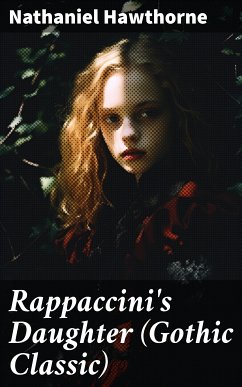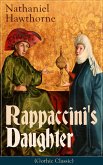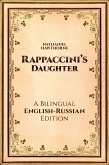Nathaniel Hawthorne's "Rappaccini's Daughter" explores the intersection of science, ethics, and the human condition through a rich tapestry of Gothic elements. Set in 19th-century Italy, the narrative unfolds in the lush gardens of Dr. Giacomo Rappaccini, where botanicals take on a life of their own, symbolizing both beauty and danger. Hawthorne's lyrical prose reflects his deep engagement with Romanticism, illustrating the conflict between nature and man-made knowledge. The novella, a poignant meditation on isolation and obsession, ultimately raises profound questions about the potential perils of scientific advancement and its impact on human relationships. Hawthorne, born in 1804 in Salem, Massachusetts, was steeped in a history of Puritanism, which heavily influenced his philosophical and ethical inquiries throughout his literary career. His fascination with morality, sin, and human fallibility is palpable in this work, which also reflects his personal struggles with his family'Äôs legacy and the broader societal implications of knowledge and power. This background imbues 'Rappaccini's Daughter' with a rich psychological depth, setting it apart in the canon of American literature. For readers seeking an intricate blend of moral quandary and Gothic horror, "Rappaccini's Daughter" stands as a compelling choice. Hawthorne'Äôs incisive examination of the duality of human nature will resonate deeply, urging readers to reflect on the implications of scientific curiosity and the ethical boundaries of innovation. This timeless tale promises to engage and challenge anyone willing to traverse its intellectual landscape.
Dieser Download kann aus rechtlichen Gründen nur mit Rechnungsadresse in A, B, BG, CY, CZ, D, DK, EW, E, FIN, F, GR, H, IRL, I, LT, L, LR, M, NL, PL, P, R, S, SLO, SK ausgeliefert werden.









